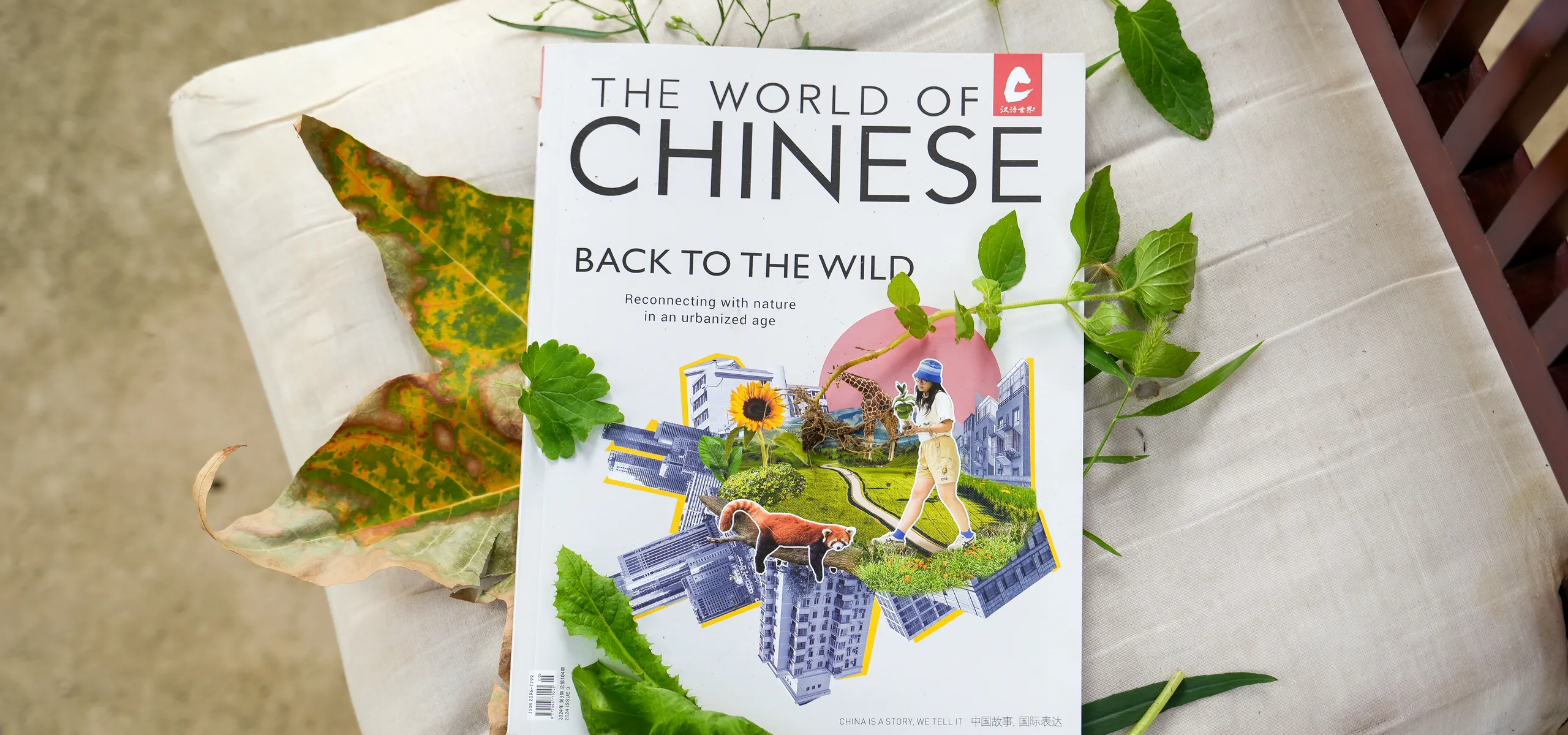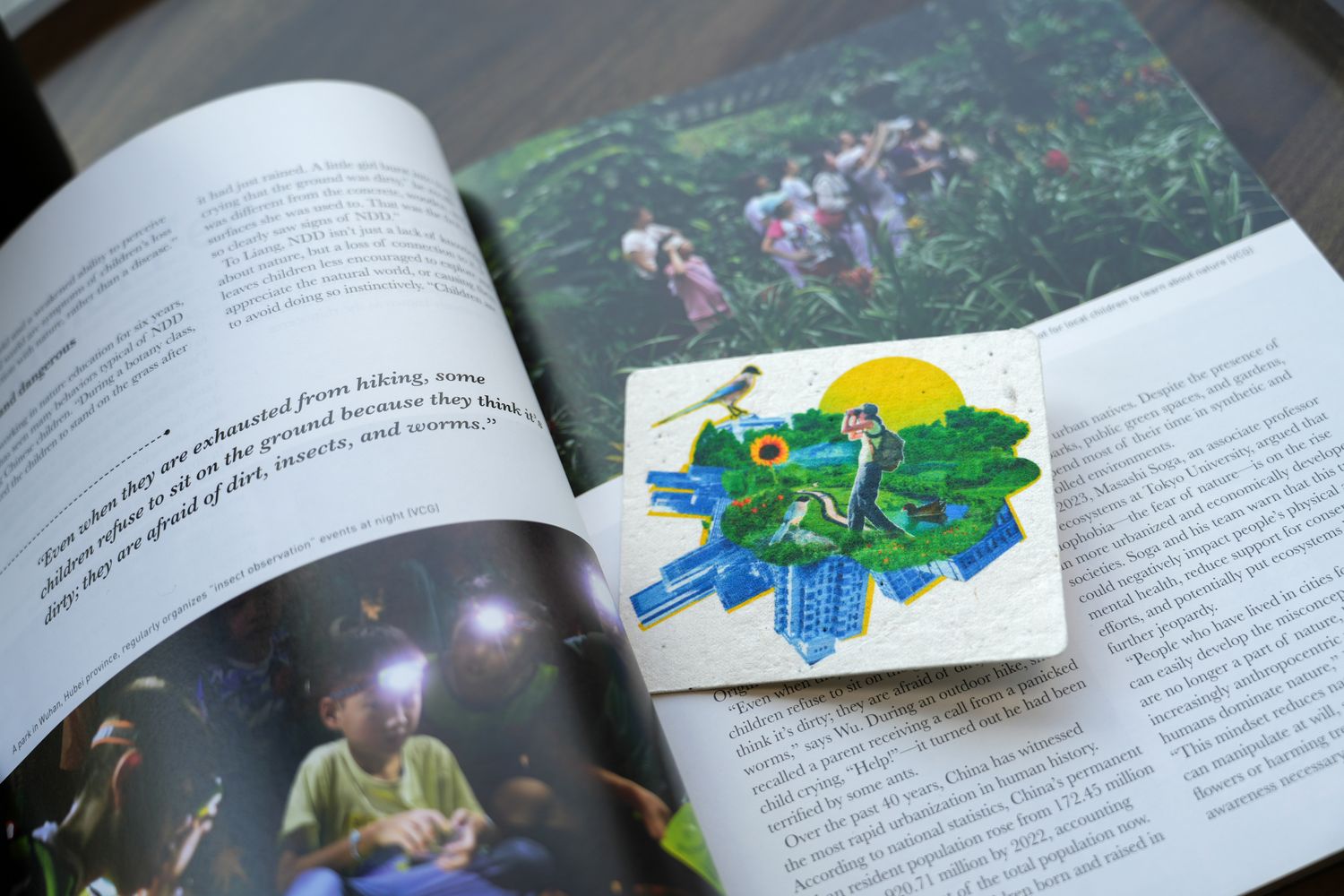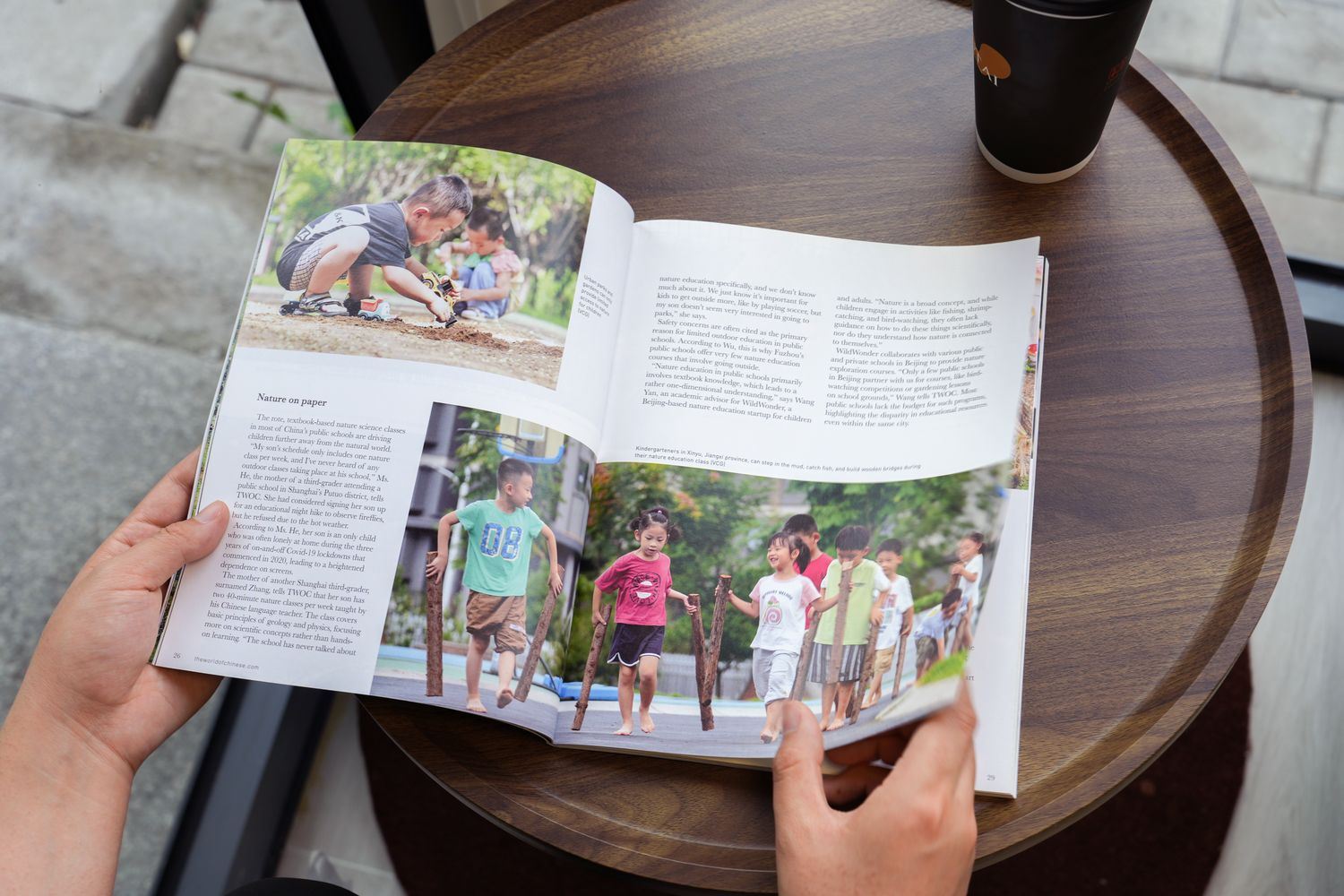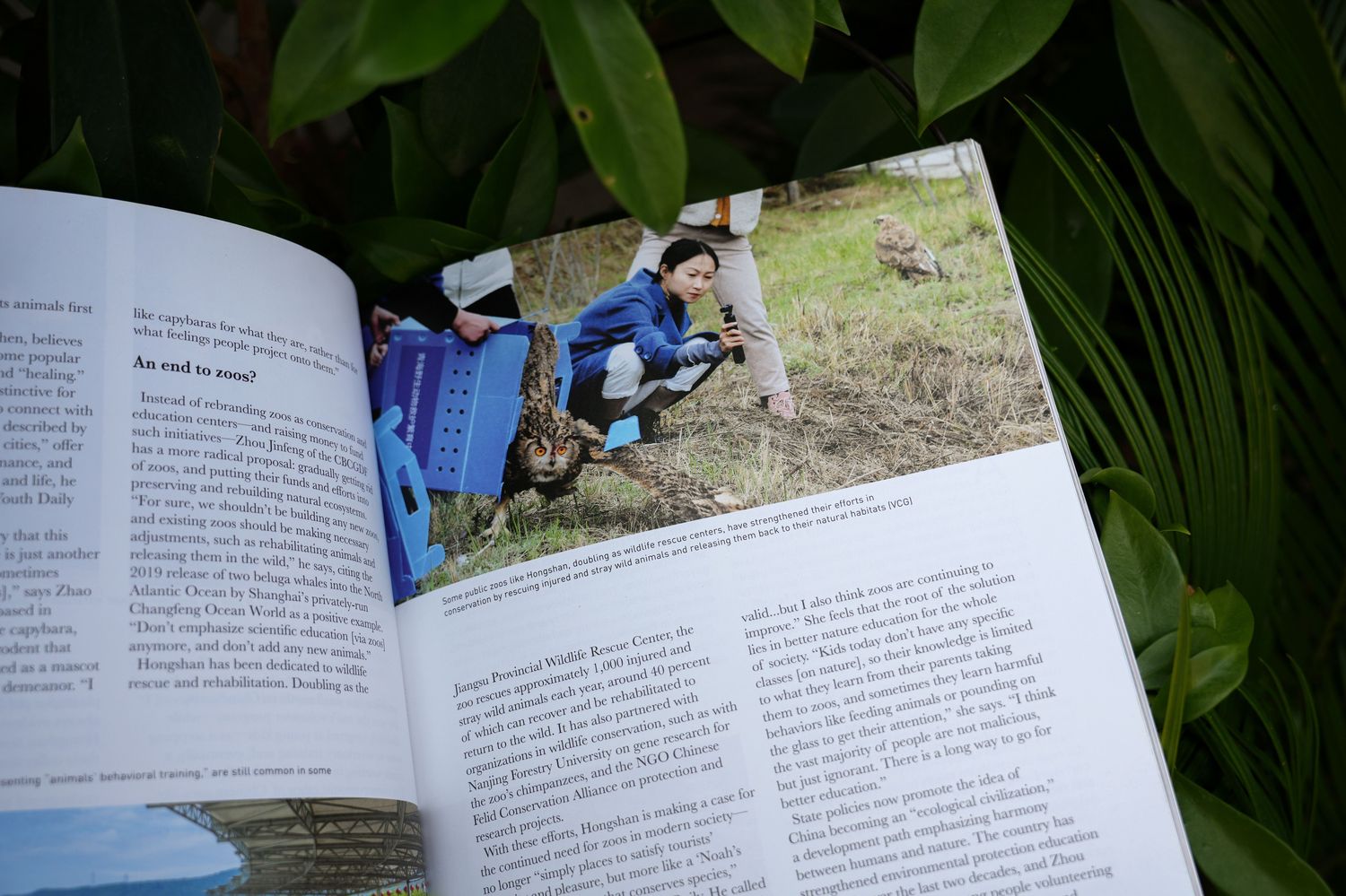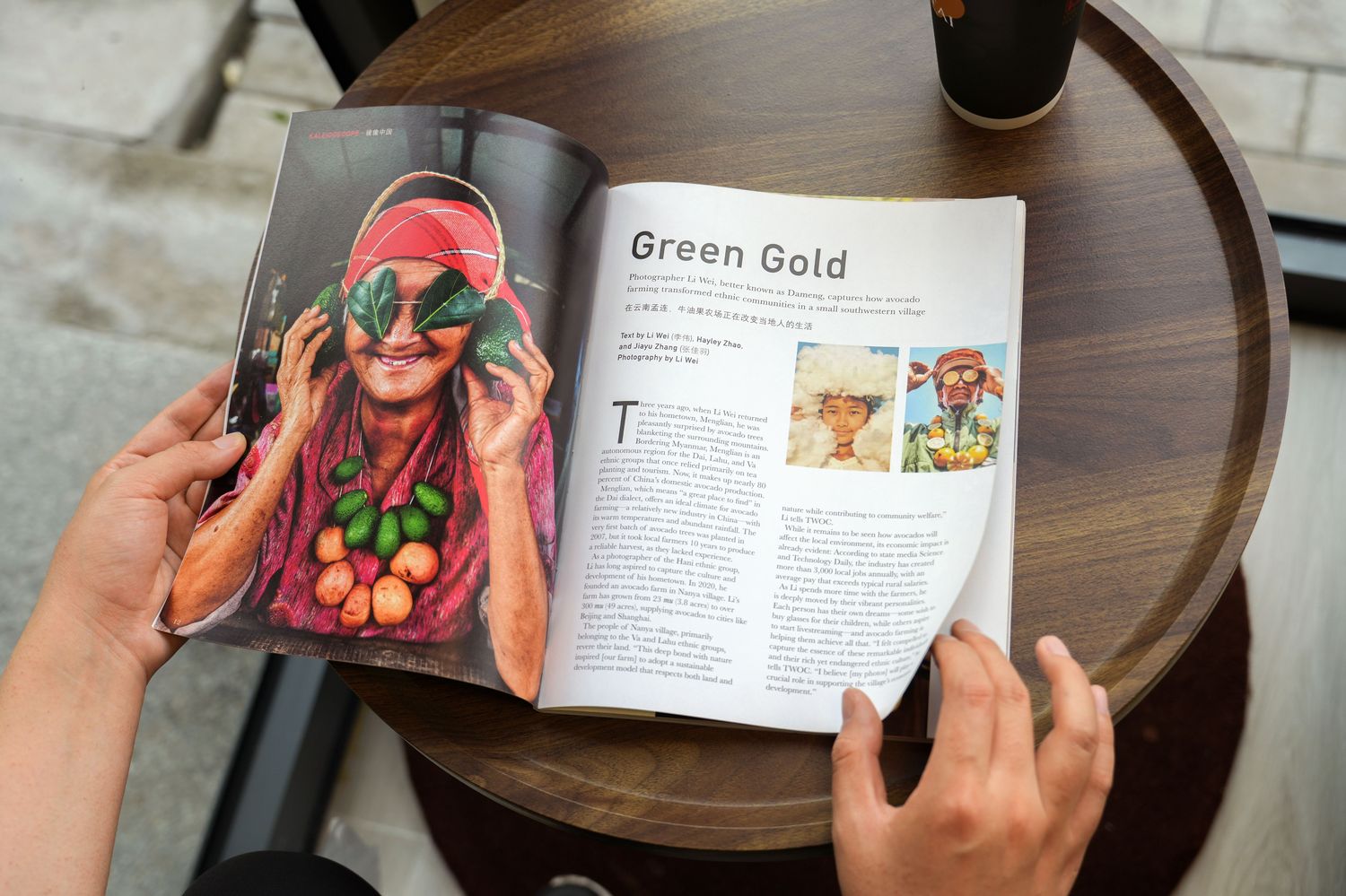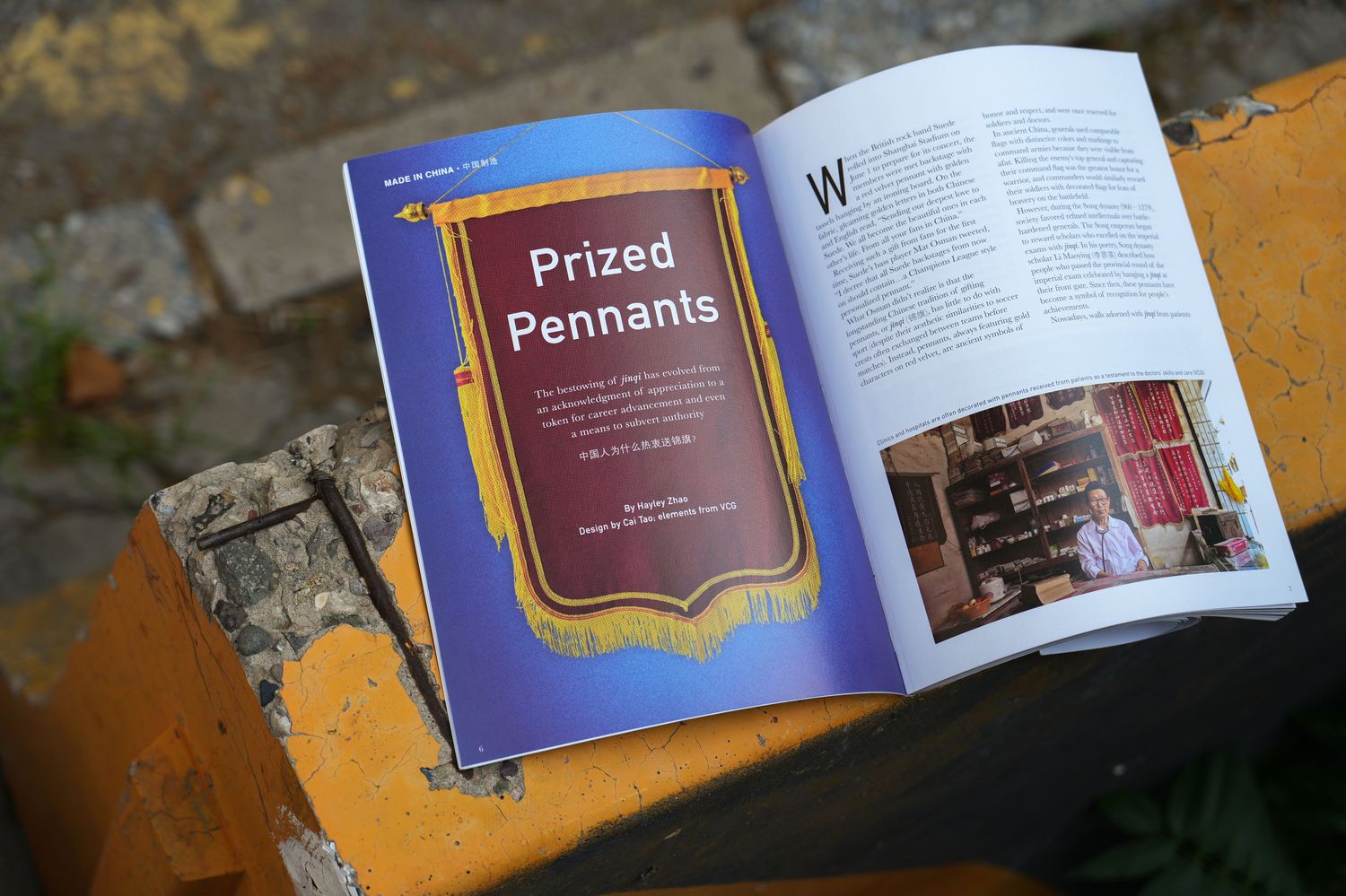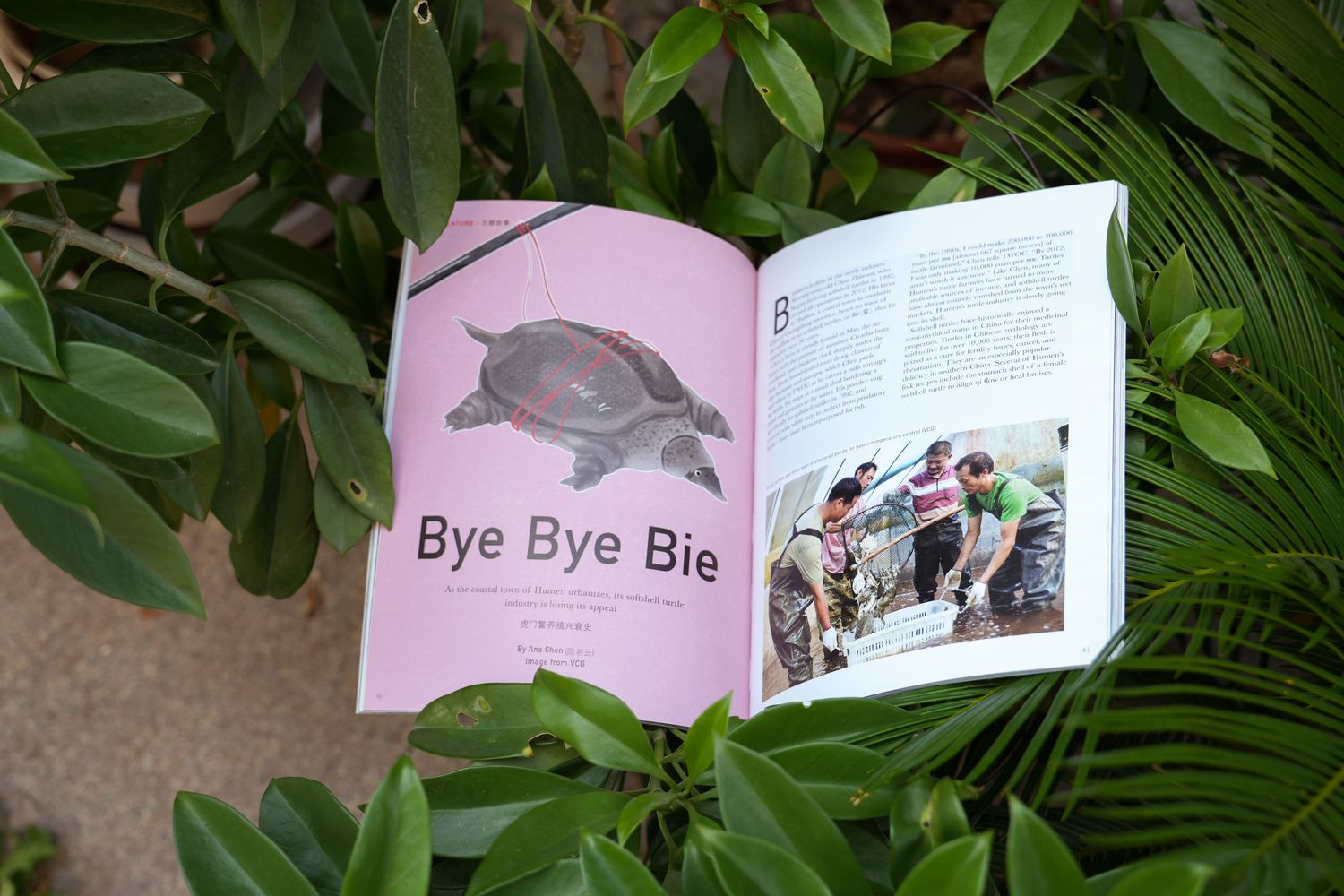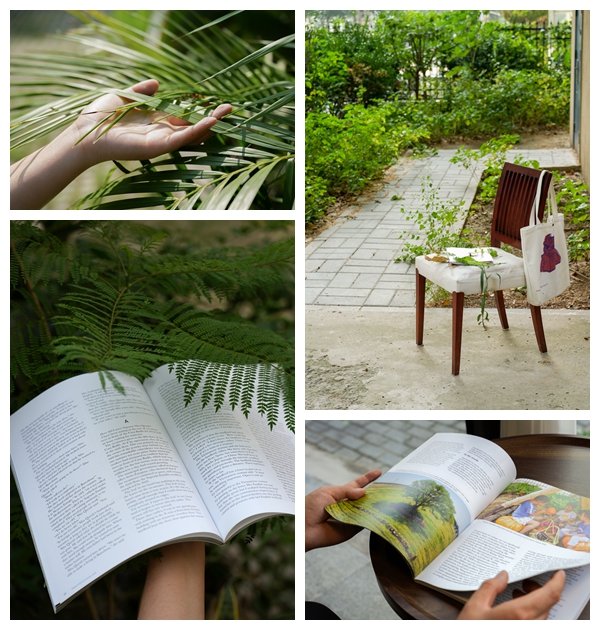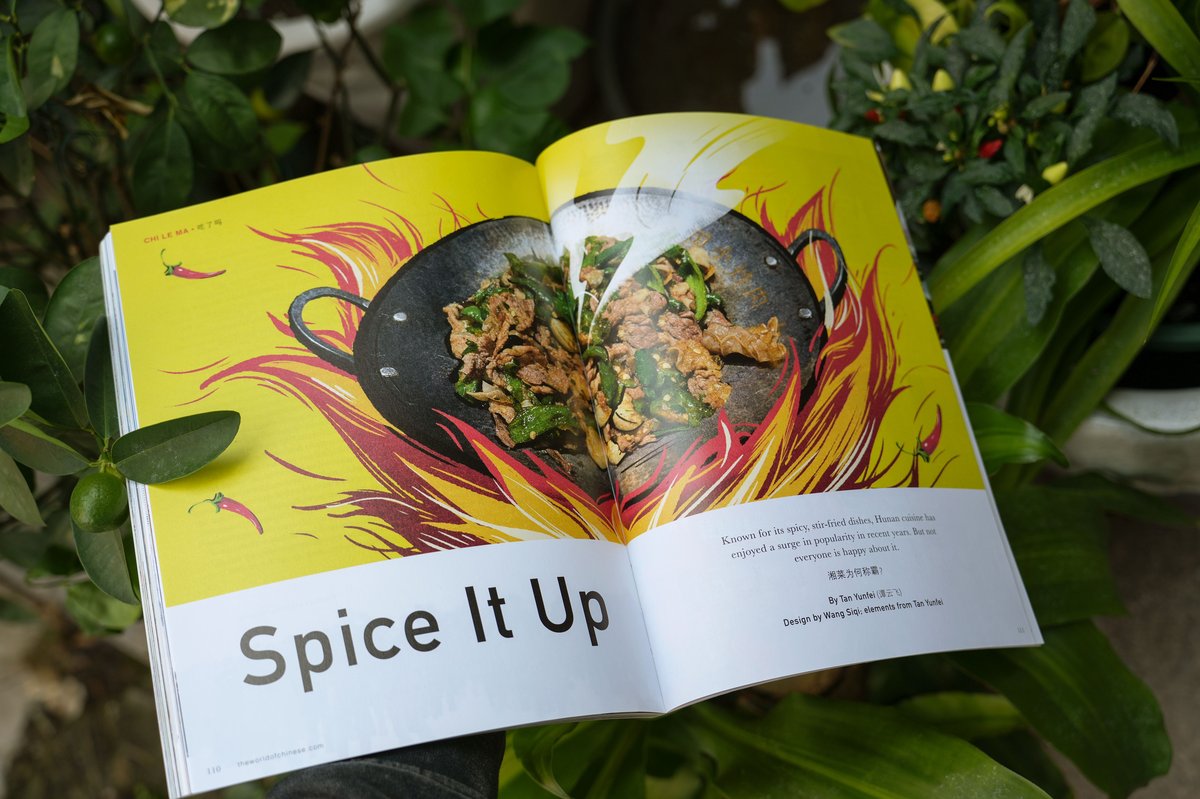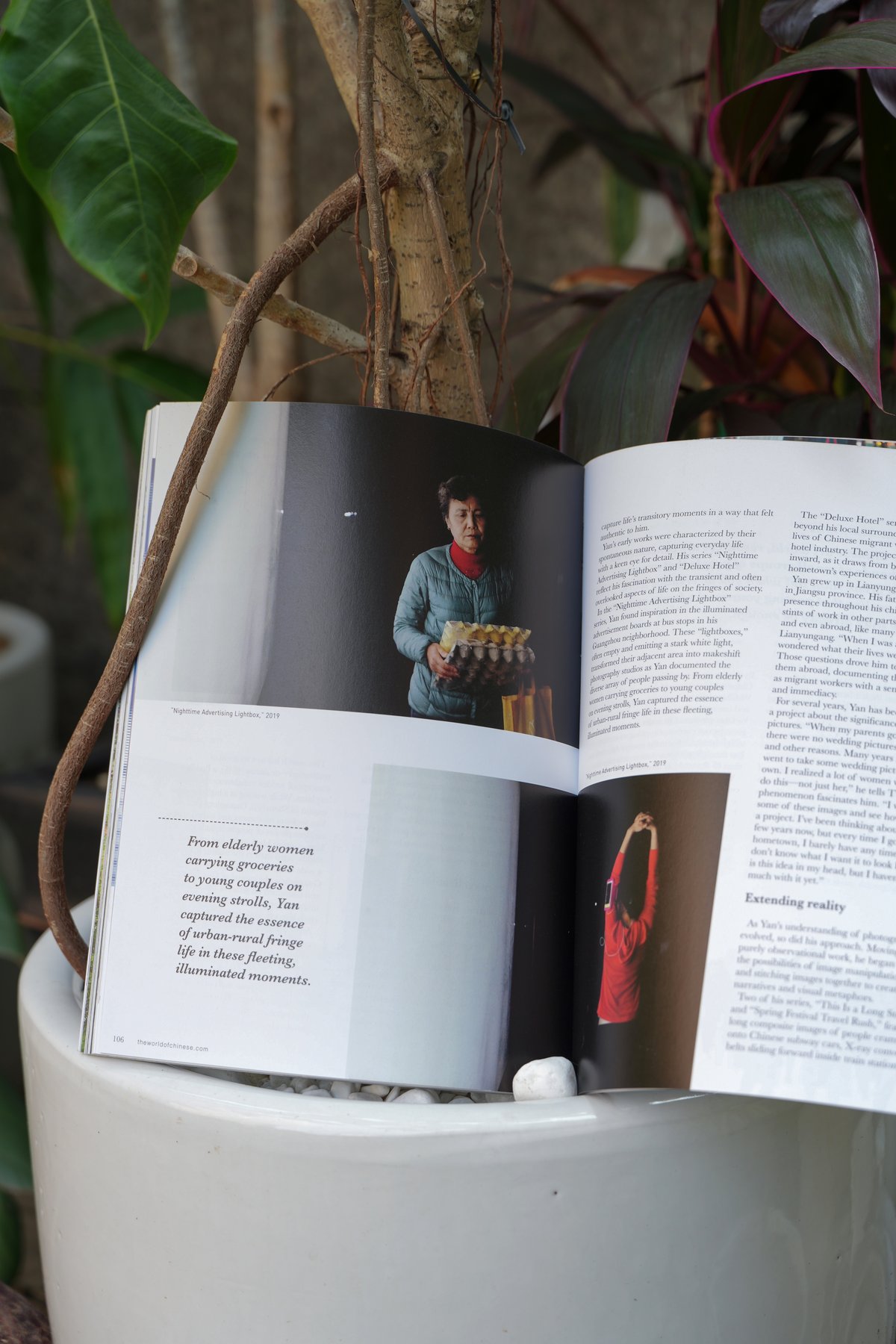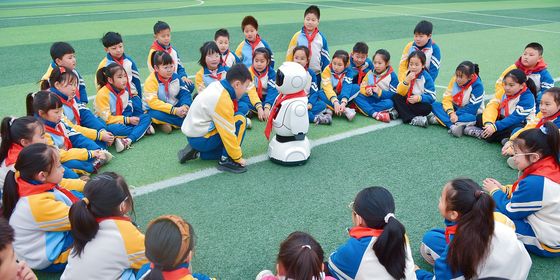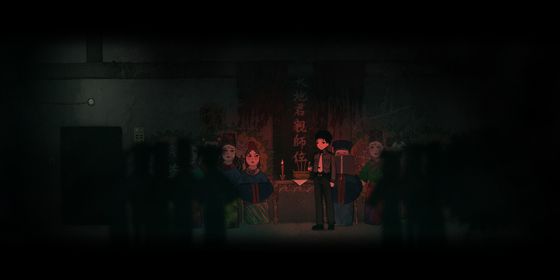Find out how Chinese people reconnect with nature in an urbanized age, and more with our latest magazine issue
Under the sweltering summer sun in a Beijing park, a dozen young children aged 3 to 7 huddled in the shade to examine a beetle under the guidance of a private nature instructor. Over the past four decades, China has witnessed the most rapid urbanization in human history, and many kids born and raised in bustling cities are gradually losing their touch with the natural world. This disconnect not only threatens their physical and mental well-being, but also undermines environmental awareness for future generations.
A group of nature educators are now fighting to get China’s kids back to the wild. Young adults, meanwhile, have turned to zoos—a “bridge” between the city and nature—to satisfy their yearning to connect with wildlife. Regarded by visitors as the best zoo in China, Nanjing’s Hongshan Forest Zoo is praised for adopting an animal-centered approach to zoo design and animal welfare. Still, its success is hard to replicate across the lagging zoo industry, and experts continue to debate whether zoos should exist at all.
Elsewhere in this issue, we maintain our commitment to presenting stories from female perspectives: Chinese women are speaking up about their uncomfortable experiences on the gynecologist’s table; a newly translated short story collection by author Yao Emei highlights women’s struggles in family lives; and popular TV adaptations of the works of Hong Kong novelist Yi Shu have gotten mixed reviews on whether they are truly good representations of female protagonists on screen.
Released on August 20, China’s first AAA game, Black Myth: Wukong, has taken the global gaming world by storm. As long-time observers of the Chinese gaming culture, we dive into the dubious world of game boosters—people playing games for money on behalf of others who have no time or will for the grind. We also bring to light the often overlooked history of Chinese game consoles.
In our travel column, we take a cruise down China’s largest river. Our food column investigates why Hunan cuisine has become the nation’s new favorite, and why some Hunan locals are not happy about it…and much more. Enjoy reading!
Grab a print copy of our latest issue today! (China/International)





